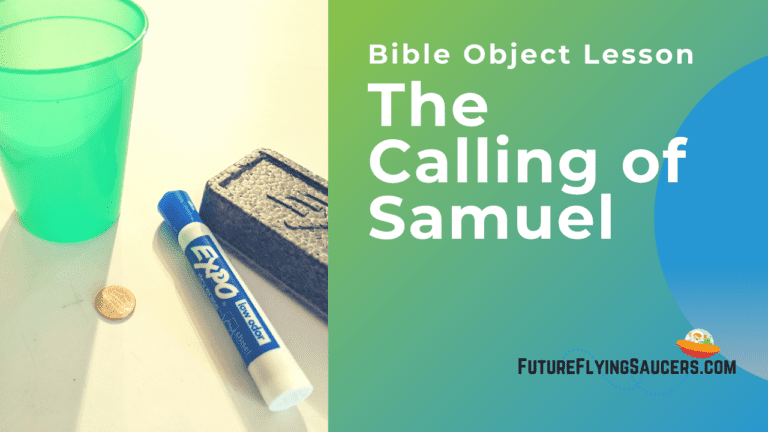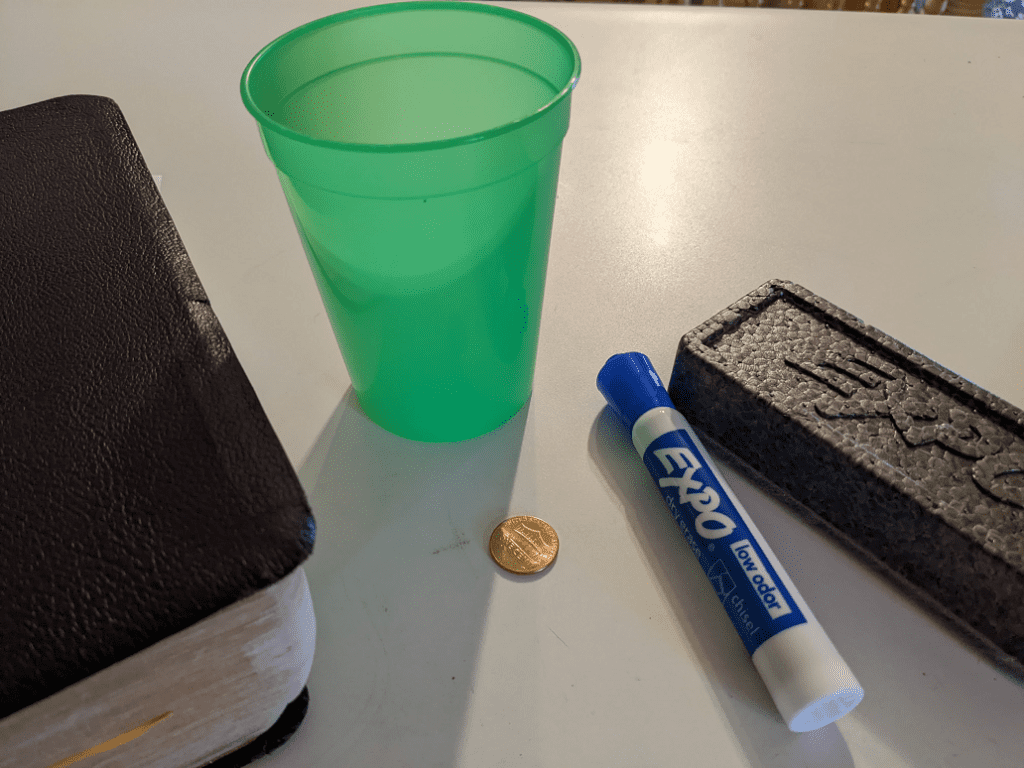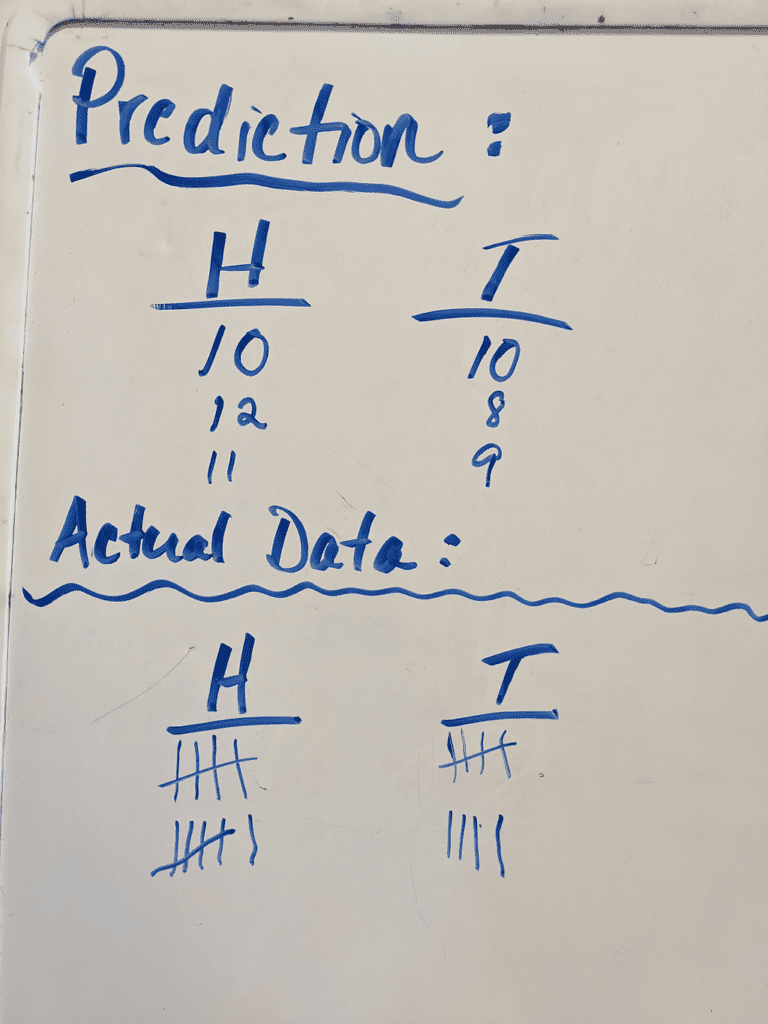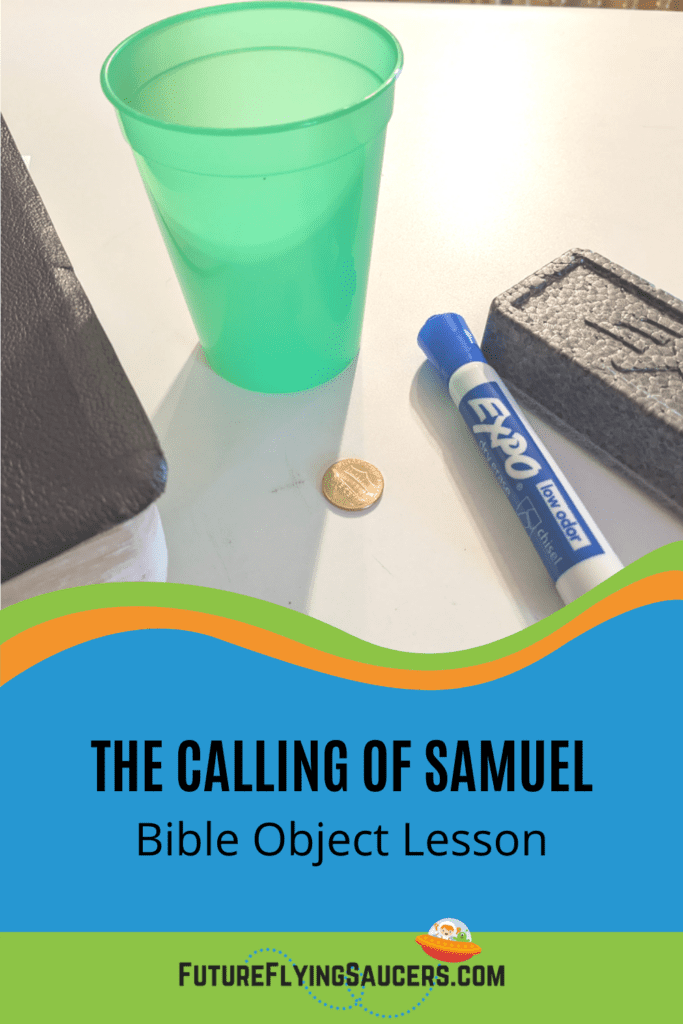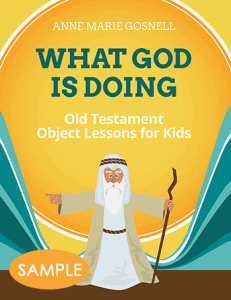Share with your friends!
How old does a person have to be for God to use him or her? Use this calling of Samuel Bible Object Lesson to teach children that God can use children and people of all ages if they are willing to listen and obey.
Scripture Focus: 1 Samuel 3
Materials:
- One coin [and one die is optional]
- Paper, or a whiteboard, to write data
Geography: Kingdom of Israel and Judah
Background: Samuel’s birth and coming to the tabernacle signifies the beginnings of God preparing the people for the monarchy. Of course, this doesn’t happen until the Israelites choose the monarchy form of government over God, but Samuel is the prophet chosen by God to lead during this time. In order for a man or woman to be a true prophet of God, the predictive words of the person must be fulfilled. (Deut. 18:21-22) So when God called to him in the night when he was a boy, this began the establishment Samuel’s credentials as a prophet to all the people of the land. [If you have not done a tabernacle lesson before, consider doing THIS ONE before teaching this lesson.]
The Calling of Samuel Object Lesson:
{Bring out the coin. Ask:}
- If we flip this coin 10 times, can you predict the number of times it will land on heads? [Allow for answers and write down the prediction.]
{Flip the coin 10 times and create a tally chart to record the data. Ask:}
- Were we correct with our prediction? [If the prediction was very close, have the children predict again and continue to 20 flips or 30 flips and record the data.]
Bible Lesson:
A prophet of God was a mediator (someone who stands between) between the people of God and God Himself. A prophet was also a leader of the Israelites. Samuel was both a mediator and a leader, but he also showed how God used prophets to predict the future. And Samuel was a young boy when God began to speak to him.
{Read Samuel 3. Consider assigning volunteers to act out the different roles of Samuel, Eli, and God. Point out the different details given to us in the narrative. Ask:}
- What do we learn about the word of the Lord at this time of history? [it was rare; no widespread revelation]
- When did this event take place? [Samuel was a boy; Eli was lying down; before the lamp of God went out in the tabernacle; Samuel was lying down]
- Who did Samuel think had called him? [Eli]
- How many times did God speak to Samuel before Eli figured out what was going on? [three times]
- What does God do when He comes to Samuel the forth time? [God came and stood and called]
- How did Samuel handle this situation? [Allow for answers; Because Samuel did not know the Lord yet, he wasn’t sure what was going on, so he assumed Eli called him. Once Eli guided Samuel and told him how to respond, Samuel obeyed and listened to God.]
- What emotions do you think Samuel felt? [Allow for answers; confused, anxious, curious, we aren’t told how Samuel felt. God doesn’t even tell Samuel to not be afraid. What we do know is that Samuel was afraid to tell God’s message to Eli.]
- What was the message given to Samuel? [Allow for answers; Eli’s sons were sinful, Eli knew it, and he had done nothing to try to guide them back to a righteous life. Because of this, Eli’s hereditary line for the High Priest would end.]
Samuel was afraid to tell Eli God’s message, however, Eli wanted to know what message God had given Samuel, so he asked Samuel to not hide the word from him. He obeyed and told Eli God’s word. In First Samuel chapter 2 we learn that a man of God had already given Eli this exact same prophecy and Eli had done nothing between the two messages to guide or discipline his sons.
Life Application:
When we flipped the coin, we attempted to predict if it would land on heads or tails. There were only two options. A prophet who predicted the future was different from a coin flip because there are many, many options that can happen in the future. So when a prophet, like Samuel, received a word from the Lord, and then it happened, that gave Samuel credibility in the eyes of Eli and the Israelites. That meant that Samuel was respected as a true prophet of God and the people from the northern cities down to the southern cites listened to Samuel.
{Optional: If you have time, do the previous prediction activity again, this time using the die. Have the children predict which number they think will show up the most after 30 rolls. Then roll the die 30 times and tally the data. Discuss how many options there were this time for rolls versus the coin toss (six versus two) Ask:}
- What are some ways people try to predict the future today? [Allow for answers; weather prediction, economic trends, societal trends]
- How good are people at predicting the future? [Allow for answers; sometimes weather prediction and others are correct because they use scientific laws, or trends to predict what might happen, however there will always be a percentage of error.]
- How good were prophets at predicting the future? [Allow for answers; everything they said came true just as God said it would.]
- Have all prophecies from the Bible happened? [Not yet]
- Do we still have prophets today? [Allow for answers; John the Baptist is considered the last of the Old Covenant prophets because he spoke just before Jesus started His ministry. Jesus is considered the last true prophet because He was God and spoke for the Father and Himself. ]
- Do you need a prophet to tell you the words of God? [Allow for answers; explain that we do have prophets to listen to and their words are recorded in scripture; there are also people in the church who are gifted with prophecy, but we must be careful to make sure that the words from those people match the words in scripture. (Deut. 18:21-22) ]
Prophets in the Bible were important because they spoke words from God, led people, and mediated between God and people. Now that we have our own copies of the Bible, we don’t really need an actual PERSON to tell us the words of God because we can read those words for ourselves. And we should.
Many prophets in the Old Testament prophesied and the prophecies did not come true for many years, sometimes hundreds of years. Examples of this would be prophecies about Jesus. Bible scholars think that there are more than 300 prophecies about Jesus in the Old Testament and He fulfilled everyone one of them.
God used Samuel in mighty ways all throughout his lifetime, from his young days until he was very old. He anointed the first two kings of Israel and he spoke God’s word to the people as he traveled throughout the land.
What can we learn from Samuel? God wants to speak to you through His word now while you are young and all throughout your life. He wants to do mighty things with you just like He did with Samuel. Are you willing to say, “Yes, your servant is listening?”
Worship Songs and Videos for Bible Lesson:

